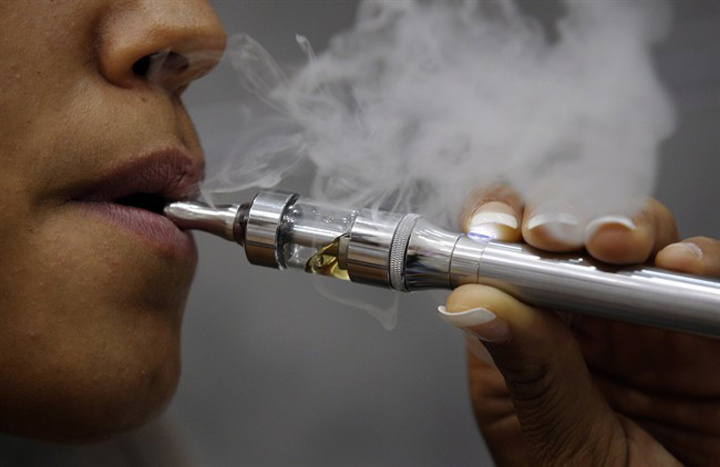Teenagers and young adults who smoke electronic cigarettes are considerably more likely to start smoking tobacco cigarettes within a year – in comparison to their peers who do not smoke, according to a new study.

Dr. Brian Primack of the University of Pittsburgh School of Medicine and colleagues at Dartmouth-Hitchcock Cancer Center, surveyed close to 700 teens and young adults in the United States who had never smoked. Out of those who used e-cigarettes 38 per cent started smoking tobacco within a year.
Many experts, including Primack, are concerned that e-cigarettes are too enticing for teens and children.
“E-cigarettes… come in youth-oriented flavourings that laws have limited in traditional cigarettes, such as apple, bubble gum and chocolate candy cane,” Primack said in a statement.
The study authors also write, “that some other concerns include e-cigarettes deliver nicotine more slowly than traditional cigarettes, allowing a new user to advance to cigarette smoking as he or she becomes tolerant of nicotine side effects. Adding, e-cigarettes are designed to mimic the behavioural and sensory act of cigarette smoking, allowing the user to become accustomed to the act of smoking.”
READ MORE: U.S. officials wants to regulate e-cigarettes – is Canada following?
In 2009, Health Canada advised Canadians not to “purchase or use electronic smoking products, as these products may pose health risks and have not been fully evaluated for safety, quality and efficacy by Health Canada.”
Despite the warning from Health Canada e-cigarette popularity is growing and health advocates are concerned the federal government is not doing enough to protect Canadians. Other levels of government have decided they simply cannot delay any longer, and are enacting local and provincial regulations.
The Heart and Stroke Foundation, the Canadian Cancer Society and most recently the Canadian Dental Hygienists Association have expressed concerns about e-cigarettes as well.
“Although they are perceived to be less harmful than tobacco cigarettes, it is clear that e-cigarettes are not harmless products,” Mandy Hayre, CDHA president explains. “Since e-cigarettes are not regulated by all levels of government in Canada, some e-cigarette products labelled as nicotine-free have been found to contain nicotine. Other ingredients that have been found in e-cigarettes include formaldehyde, carcinogenic compounds, and vapour containing heavy metals. Moreover, the potential harm from second-hand e-cigarette vapour remains an unknown,” Hayre said.
- B.C. to ban drug use in all public places in major overhaul of decriminalization
- 3 women diagnosed with HIV after ‘vampire facials’ at unlicensed U.S. spa
- Solar eclipse eye damage: More than 160 cases reported in Ontario, Quebec
- ‘Super lice’ are becoming more resistant to chemical shampoos. What to use instead





Comments